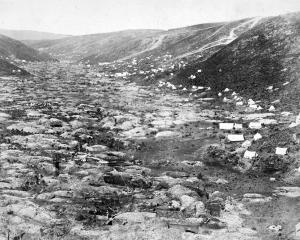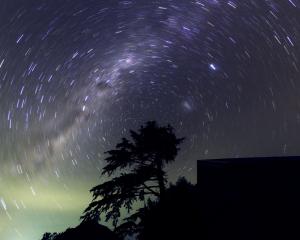A recent Business and Economic Research Ltd (Berl) report estimates hydro-electric generation accounts for 140 full-time jobs in Central Otago and adds $15 million-$20 million per year to the regional economy.
The report, commissioned by the Central Otago District Council, also estimates the contribution to the New Zealand economy of Central Otago generation at between $100 million-$125 million. This includes small operations such as Pioneer's 10 stations (in four schemes at Teviot, Roaring Meg, Falls Station and Fraser Station, with a combined capacity of 23MW) to Contact's Clyde and Roxburgh stations (combined capacity of 752MW).
The report is likely to be presented to the district council's next full meeting in March, when councillors will be asked to approve the development of a Central Otago commercial water use strategy.
Expected to be completed within the next 12 months, the strategy aims to provide a "comprehensive and defensible overview of the current and potential impacts of water on the economy and communities of Central Otago", the Berl report states.
Such a statement might raise concern among those opposed to further development on the Clutha, particularly in light of a 2008 paper by Parsons Brinckerhoff Associates for the Electricity Commission, which short-listed schemes in the Otago area (Tuapeka, Luggate, Queensberry Hills and Beaumont), and Contact confirming last August it was revisiting previously shelved plans for dams at the latter three locations.
However, Jonathan Gadd, the council's business development manager, emphasises a forthcoming water-use strategy would provide a framework to evaluate all commercial use of water, not just hydro generation.
"We are not trying to align ourselves to power generation. I don't think you can take that from it. From a district's point of view, we are asking what is the best and most efficient use of water for our community and for our economy," Mr Gadd explained, when asked to comment on the proposed strategy earlier this week.
"As well as commercial water uses, we would look to consider non-commercial aspects such as the value of recreation, amenity or conservation. As the local authority, we are concerned with, among other things, the social and economic development of the district, so we cannot discount aspects that benefit the community but may not be as directly commercial as irrigation or power generation.
"If anything, hydro is not the major commercial user of water in the district. In some ways, it competes with other users . . . One of the arguments you could use regarding hydro power is that a lot of the actual benefit of that falls outside the district," he says, pointing to the large difference between what the Central Otago economy receives as compared to the national figure.
"If we are being parochial - which I am - you would argue a use that maximises the benefit within the district should be the best one."












